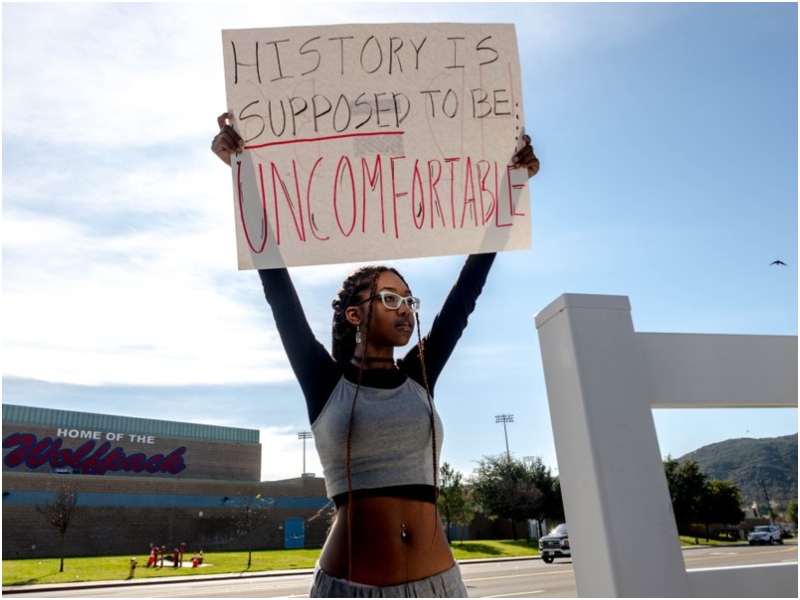A legal battle has emerged in Arkansas as a high school teacher and the families of two students from Little Rock Central High School filed a lawsuit against the state over its contentious LEARNS Act, which prohibits the teaching of critical race theory and characterizes it as a form of indoctrination.
The lawsuit, as reported by The Associated Press, contends that the restrictions imposed by the LEARNS Act, introduced by Arkansas Governor Sarah Huckabee Sanders in 2023, violate both the First Amendment and the equal protection clause of the 14th Amendment.
Central to the lawsuit’s argument is the historical significance of Little Rock Central High School, which played a pivotal role in the fight against racial segregation.
In 1957, amid the landmark Brown v. Board of Education decision, the school witnessed the integration of the “Little Rock Nine” under the escort of the U.S. Army, ordered by President Dwight D. Eisenhower.
Governor Huckabee Sanders defended the LEARNS Act, stating:
“In the state of Arkansas, we will not indoctrinate our kids and teach them to hate America or each other.”
However, critics argue that such legislation inhibits honest discussions about race in classrooms.
The ban on critical race theory, a concept not typically taught in K-12 education, has drawn scrutiny from legal experts and civil rights advocates.
Critical race theory is a scholarly framework that examines systemic racism and its impacts on society.
The NAACP Legal Defense Fund emphasized that efforts to censor discussions on racial justice impede students’ rights to receive a comprehensive education.
They explained:
“Critical Race Theory recognizes that racism is embedded in laws, policies, and institutions that uphold and reproduce racial inequalities.”
The LEARNS Act has faced backlash from the Laux Law Group, representing the plaintiffs in the lawsuit.
In a statement, they denounced the act as a “brazen, political attempt to silence speech and expression,” arguing that it violates constitutional rights and perpetuates discrimination.
The legal challenge reflects the ongoing debate surrounding educational policies and the balance between free speech and government regulation in classroom curricula.

